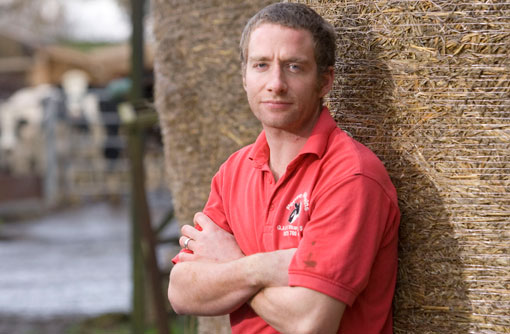Grass silage quality ‘ordinary’ says Paul Vicary

The 2012 grass silage is now being fed and is very ordinary, with an ME of only 10, protein down to 12% and low D values. One clamp is very dry and the other very wet, but thankfully we have more of the dry stuff and are blending the two with third-cut bale silage, which is rocket fuel (unfortunately there is only 100t of this). The mix is resulting in very high butter fats (4.1%), which has raised our milk price a little. This makes up for the lower yield from such “flat” silage.
The maize is ripening slowly and is unlikely to be cut before mid-October, weather permitting. We did, however, cut 6ha on 30 September, as last year’s poor crop has come to haunt me and will run out before the main crop is ready. I have bought some sodium bicarbonate to buffer the fresh maize – not ideal, but needs must in such a difficult year.
A sad day dawned on Hilders Farm as we put to sleep our faithful and beloved dog Pip, after an accident with a tractor broke his leg, leading to a bad infection, despite the vet and the family’s best efforts. He is now resting under an oak tree overlooking the farm. Josh, our other farm dog, has been having fun with a lady friend. The vet is scanning her next week and we will have pick of the litter. I think we’re going to have a bitch.
The farm welcomed a new middle-year student, Jonathan Camp, who replaces Jade Upsall Davies, who we wish well. And Bronwyn Franks starts as the new assisted herdswoman. It’s nice to have fresh faces around the place and Bronwyn’s is a new position that will make the unit work better.
Paul Vicary farms 458ha at Hilders Farm, Kent, in partnership with his parents, Helen and Graham. They milk 220 cows three times a day and have 200 followers. They plan to increase the herd size to 350 by 2015. They also run 500 ewes and ewe lambs
